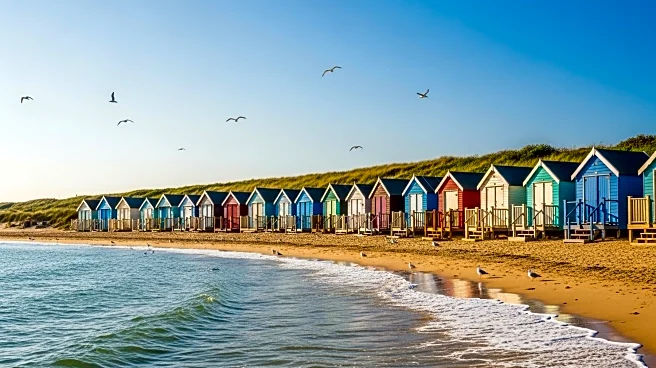What's Happening?
A local businessman has proposed the development of 12 self-catered holiday units on the site of the former Milano Bars in St Ouen’s Bay. The site, which has been a car park since the demolition of the hotel and restaurant in 1996, is now under new ownership. The proposal aims to transform the area into a tourist accommodation spot with reduced environmental impact. The plan includes a public consultation to gather feedback from local residents and stakeholders. The proposed development would replace the previously approved hotel and restaurant plan, offering a lower occupancy and fewer parking spaces, thus reducing the site's intensity of use.
Why It's Important?
This development proposal is significant as it aligns with efforts to revitalize Jersey's tourism sector by offering sustainable and contextually appropriate accommodations. The plan promises to reduce the environmental footprint compared to the original hotel and restaurant scheme, which could appeal to environmentally conscious tourists. Additionally, the project could stimulate local economic activity by attracting more visitors to the area. However, it also raises concerns about maintaining the character and ecological integrity of the Coastal National Park, where the site is located.
What's Next?
The next steps involve a public consultation scheduled at St Ouen’s Parish Hall, where local residents and stakeholders can provide their input on the proposal. The feedback gathered will likely influence the final design and implementation of the project. The businessman will also continue discussions with the Planning Department and other relevant bodies to ensure the development meets all regulatory requirements and aligns with Jersey's strategic tourism goals.
Beyond the Headlines
The proposal reflects a broader trend towards sustainable tourism development, emphasizing reduced environmental impact and integration with the local landscape. This approach could set a precedent for future developments in Jersey, balancing economic growth with ecological preservation. The project also highlights the importance of community engagement in planning processes, ensuring that developments meet the needs and expectations of local residents.









